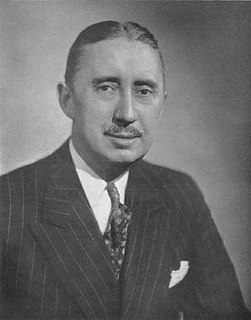A Quote by Daniel J. Boorstin
If our knowledge is, as I believe, only an island in an infinite sea of ignorance, how can we in our short lifetime find satisfaction in exploring our little island? How can we persuade ourselves to be exhilarated by our meager knowledge and yet not be discouraged by the ocean vistas?
Related Quotes
Faced with the immensity of the universe, Job realized that there are limits to man's rationalizing, that we cannot find where the cloud of sorrow starts, that all our boasted knowledge is but an island in the vast ocean of mystery, and as the island of knowledge grows larger, the shore line of mystery becomes longer. At the end of his wits, he surrendered in trust to a Higher Wisdom.
We have heard of a Society for the Diffusion of Useful Knowledge. It is said that knowledge is power, and the like. Methinks there is equal need of a Society for the Diffusion of Useful Ignorance, what we will call Beautiful Knowledge, a knowledge useful in a higher sense: for what is most of our boasted so-called knowledge but a conceit that we know something, which robs us of the advantage of our actual ignorance? What we call knowledge is often our positive ignorance; ignorance our negative knowledge.
Human existence is girt round with mystery: the narrow region of our experience is a small island in the midst of a boundless sea. To add to the mystery, the domain of our earthly existence is not only an island of infinite space, but also in infinite time. The past and the future are alike shrouded from us: we neither know the origin of anything which is, nor its final destination.
We are unknown to ourselves, we men of knowledge - and with good reason. We have never sought ourselves - how could it happen that we should ever find ourselves? It has rightly been said: "Where your treasure is, there will your heart be also"; our treasure is where the beehives of our knowledge are.
I am convinced that it is impossible to expound the methods of induction in a sound manner, without resting them upon the theory of probability. Perfect knowledge alone can give certainty, and in nature perfect knowledge would be infinite knowledge, which is clearly beyond our capacities. We have, therefore, to content ourselves with partial knowledge - knowledge mingled with ignorance, producing doubt.
It is sufficiently humiliating to our nature to reflect that our knowledge is but as she rivulet, our ignorance as the sea. On points of the highest interest, the moment we quit the light of revelation we shall find that Platonism itself is intimately connected with Pyrrhonism, and the deepest inquiry with the darkest doubt.
The endless cycle of idea and action, Endless invention, endless experiment, Brings knowledge of motion, but not of stillness; Knowledge of speech, but not of silence; Knowledge of words, and ignorance of the Word. All our knowledge brings us nearer to our ignorance, All our ignorance brings us nearer to death, But nearness to death no nearer to God. Where is the Life we have lost in living? Where is the wisdom we have lost in knowledge? Where is the knowledge we have lost in information? The cycles of Heaven in twenty centuries Bring us farther from God and nearer to the Dust.





































